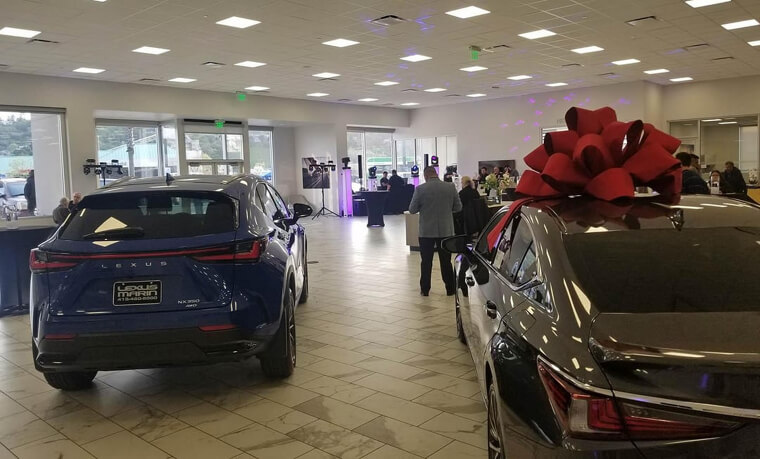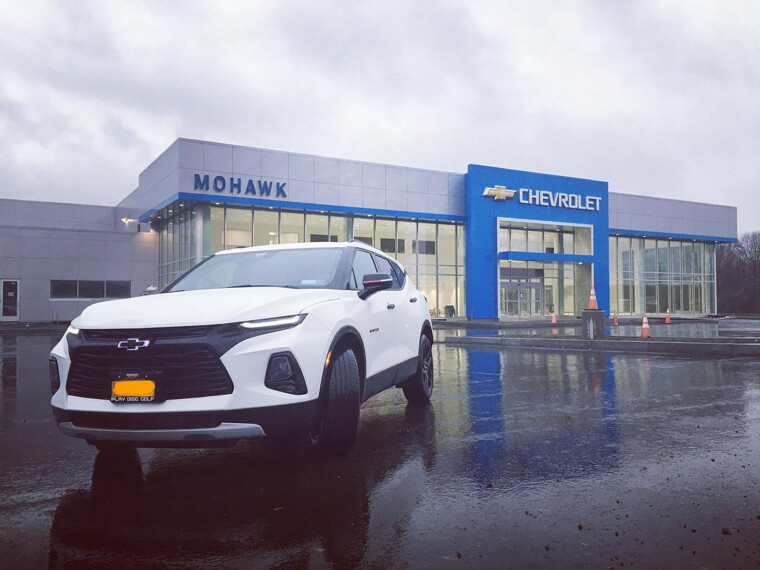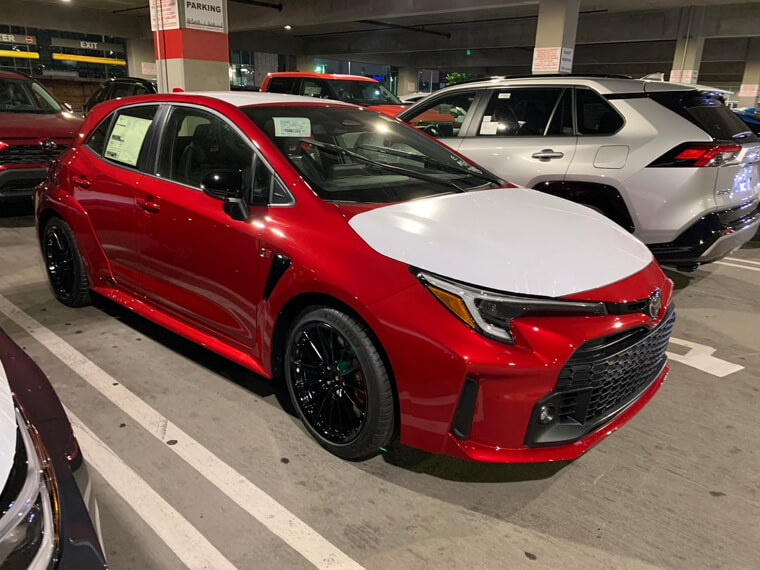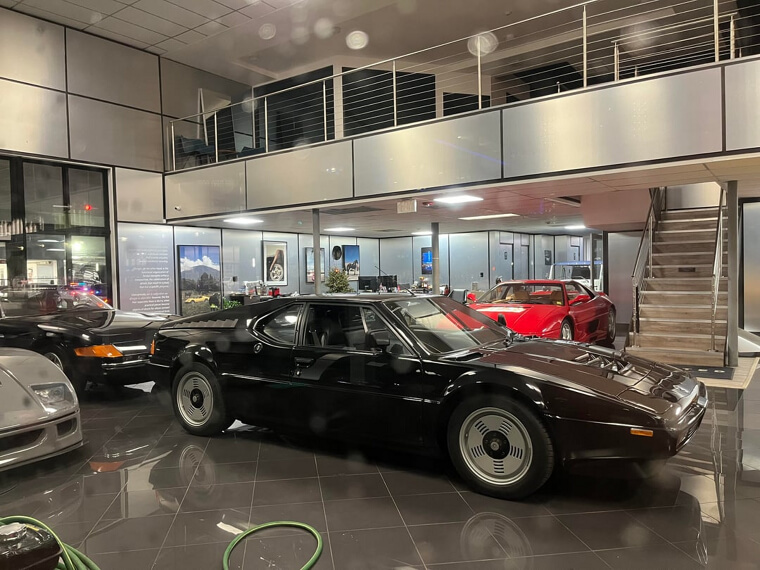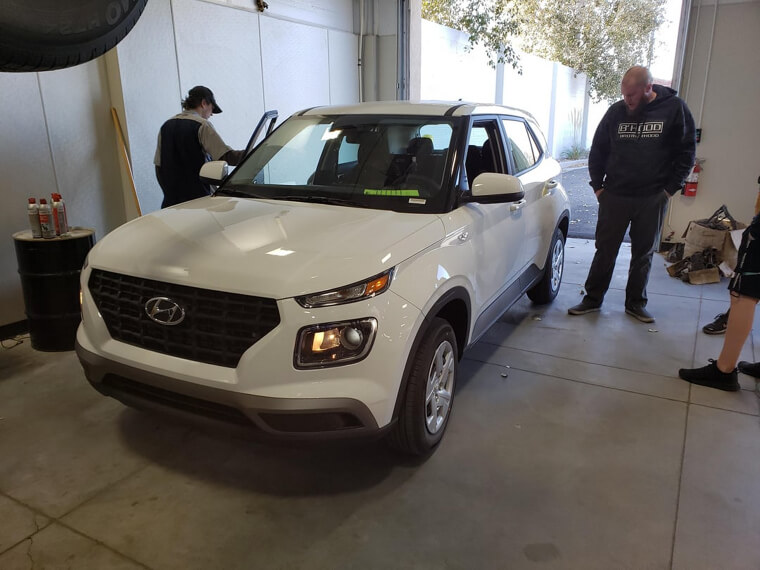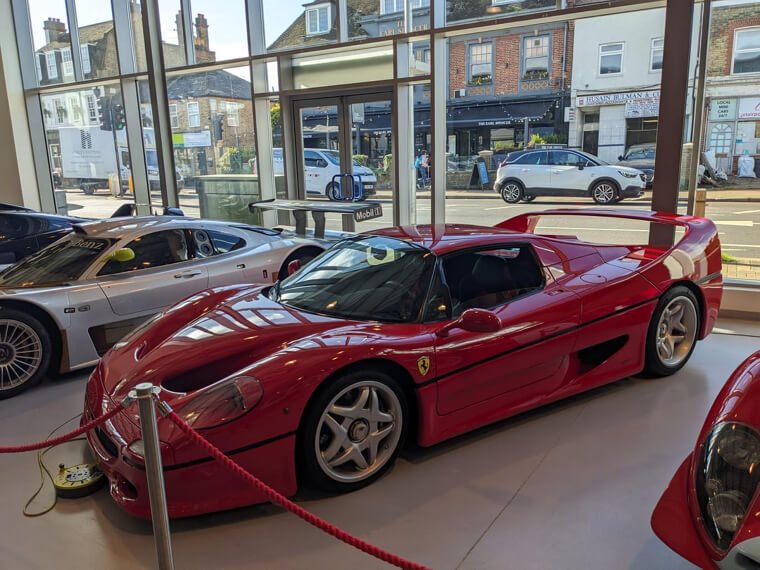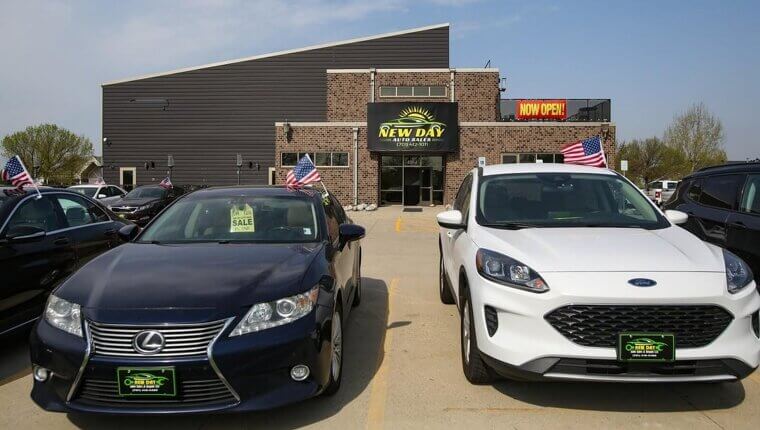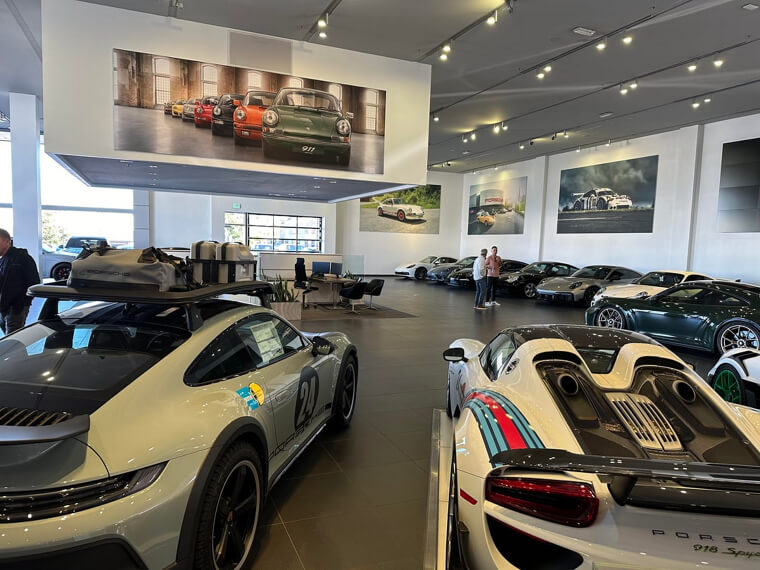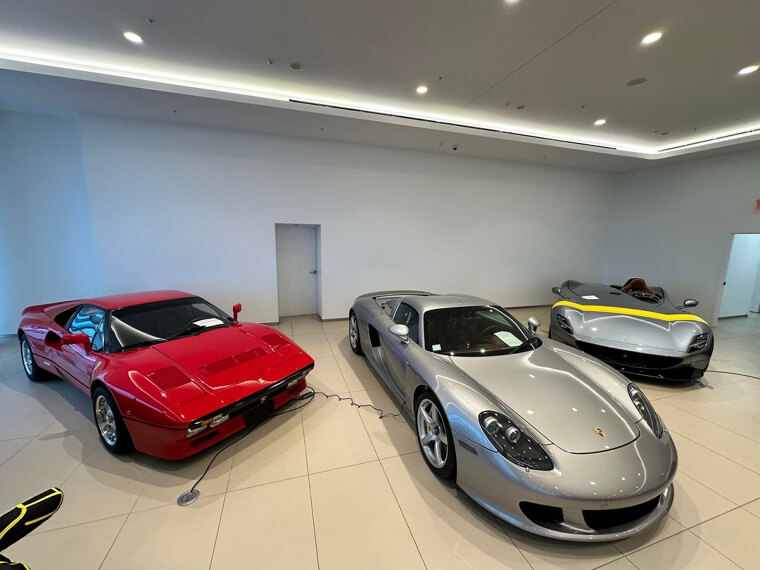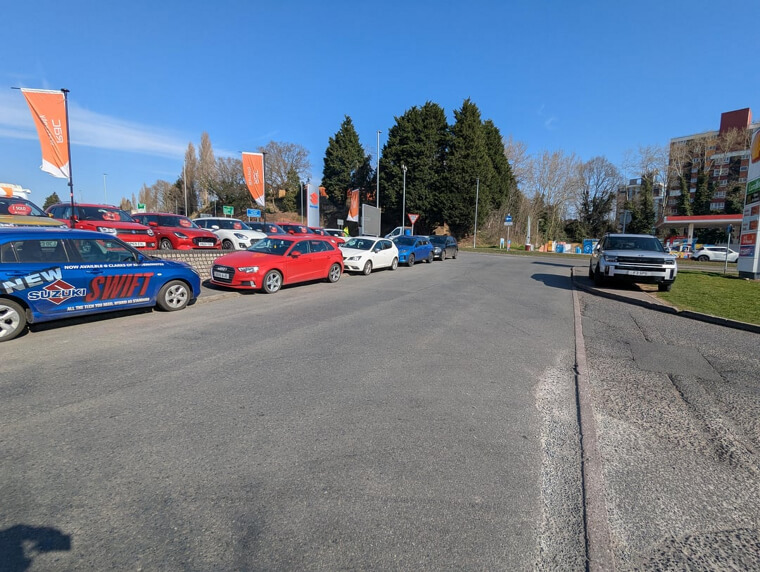They Push You to Focus on Monthly Payments Instead of Total Cost
Steering the conversation toward monthly payments is one of the oldest tactics in car sales. It allows the dealership to hide higher interest rates, inflated fees, and overpriced extras inside a longer loan term. When they keep repeating that your payment will be low, they are distracting you from the actual price of the car. A low monthly payment can mask a deal that costs thousands more in the long run. Many buyers fall for this because monthly payments feel manageable, but dealerships know that focusing on the overall price gives you more leverage. If they avoid discussing total cost or seem irritated when you bring it up, assume they are hiding a better deal. A good dealership is willing to talk openly about total price, tax, interest, and loan length. A bad one relies on payment talk to make a mediocre deal look appealing.
They Will Not Show You the Full Price Breakdown
When a dealership is confident in the deal they are offering, they present a clear, itemized breakdown without hesitation. If instead they hand you a single sheet showing only a monthly payment or a final number without details, take that as a sign something is being concealed. A proper breakdown includes the price of the car, taxes, fees, dealer add ons, financing costs, and any extras. When these categories are missing or blurred together, it becomes harder to compare offers or catch inflated charges. Salespeople may dodge questions or suggest the details are too complicated. That behavior is intentional. They know transparency would reveal room for negotiation. If you cannot see the full math, it usually means there is a better price hiding in the numbers. Always insist on a complete breakdown before signing or even considering the deal. If they resist, the offer is not their best one.
They Suddenly Offer a Lower Price Only When You Get up to Leave
If the dealership waits until you stand up to go before revealing a better price, that means they had more room in the deal the entire time. This last second price drop is a clear sign they were holding back their true offer. Good deals should be presented upfront, not only as a reaction to you walking away. When they rush after you with a new number, it is not a gesture of generosity. It is an attempt to avoid losing the sale. Use this moment as information. If they can lower the price once, they may be able to lower it again. A dealership that hides its best price until the last minute is signaling that negotiation is far from over. This tactic also shows the importance of being willing to leave. The moment you do, the real offers appear.
They Refuse to Discuss Other Incentives or Discounts
Dealerships often have multiple incentives running at the same time. These can include loyalty discounts, seasonal promotions, college student deals, military savings, or manufacturer rebates. Some dealers volunteer this information. Others stay silent until asked directly. When a salesperson insists that no incentives apply to you without even checking, assume they are choosing not to look because offering the discount would cut into their profit. A trustworthy dealership will pull up the current incentive list with ease. A shady one will claim there are none and hope you take their word for it. Always ask them to show you the available manufacturer programs. If they hesitate, stall, or rush to move on, there is a good chance they are hiding a chance to save money.
They Rely Heavily on Vague Fees With Unclear Explanations
If you see a fee labeled as documentation, dealer prep, market adjustment, or administration with no real explanation behind it, treat it as a warning sign. Some fees are legitimate, but many are inflated or unnecessary. Dealerships sometimes pad contracts with ambiguous charges because they hope buyers will not notice. When you ask about a fee and the salesperson shrugs or says everyone pays it, that is a sign the fee might be negotiable or avoidable. If removing a fee suddenly becomes possible after you push back, then the dealership was padding the deal from the start. A good dealer explains each fee clearly. A bad dealer hides profit inside confusing names. When fees feel suspicious, there is almost always a better deal behind them.
They Discourage You From Comparing Prices
If a dealership tells you not to shop elsewhere or claims that checking other prices would be a waste of time, they are worried you will discover a better offer. Confident dealerships encourage comparison because they know their pricing is competitive. Defensive ones try to keep you inside their bubble. They may say other dealers lie, other cars are worse, or their stock is the last good option. These scare tactics are designed to keep you from learning the real market value of the car. The moment a salesperson pressures you to stop researching or mocks the idea of comparing prices, assume they are hiding the fact that their deal is not the strongest. A buyer with options is harder to manipulate, which is exactly why some dealerships fight to isolate you.
They Rush You Through Paperwork
The faster a dealership pushes you to sign, the more likely they are hiding extra costs. Rushing prevents you from noticing inflated fees, extended warranties you did not ask for, or unnecessary add ons pre checked in the contract. If you feel pressured to hurry, slow down instead. Read every line, ask every question, and do not be afraid to take a break. A dealership that hides nothing will give you time to review. A dealership hiding something will act impatient or try to steer your attention away from key sections. The finance office is where many hidden charges appear, so this is also where transparency matters the most. If they will not give you time, they are not giving you their best deal.
They Dodge Direct Questions About the Out the Door Price
The out the door price includes everything: taxes, fees, add ons, and the actual price of the car. It is the only number that matters. If the dealership sidesteps this question, changes the subject, or keeps giving partial figures, assume they are hiding a better deal. Some salespeople hope that a buyer who does not insist on the out the door number will focus on smaller, less important figures. A salesperson who is honest and confident will give a clear out the door price without hesitation. One who avoids it is leaving room to slip in extra costs or inflate the total later. If they cannot give a straight answer, the real price is likely lower than what they are offering.
They Insist Add Ons Are Non Negotiable
Dealerships often install extras such as protective coatings, tracking systems, tint, fabric guard, and security packages. Some claim these add ons cannot be removed, refunded, or discounted. When a dealership uses this line, it usually means the add ons are pure profit and they do not want to admit how much they are marking them up. Truly mandatory items are rare. Most add ons are optional, and many can be declined or removed from the deal. If a salesperson insists the extras are required for the sale, that is a sign they are hiding a cleaner, cheaper version of the deal without the add ons. Push back. If the tune suddenly changes, you just uncovered their flexibility.
They Act Uncomfortable When You Mention Cash Buyers or Preapproved Financing
Dealerships make money on financing, so a buyer with preapproved funding takes away one of their profit sources. When that happens, some dealers become noticeably less enthusiastic. A few might even say that paying in cash prevents them from giving you the best deal. That statement is almost always untrue. It often means they were planning to make extra money off the financing arrangement. If the salesperson becomes vague, evasive, or discouraged when you mention outside financing, assume there was a better price hiding behind the original offer. Buyers who come prepared with preapproval often discover just how flexible dealerships can become. A dealership that is hiding nothing will welcome any form of payment. One that is hiding profit from financing will not.

